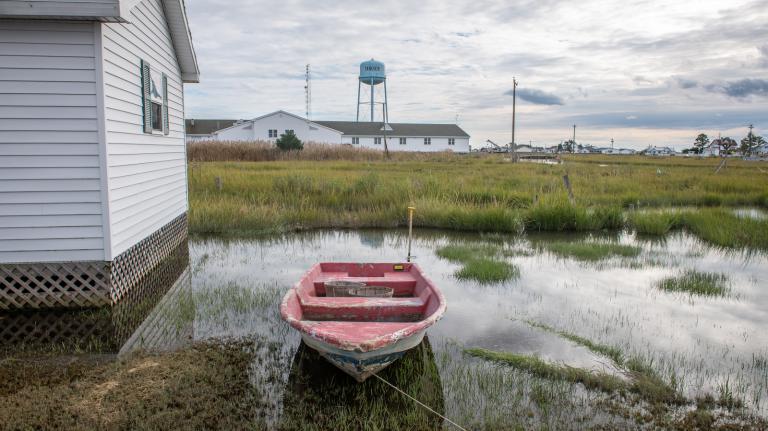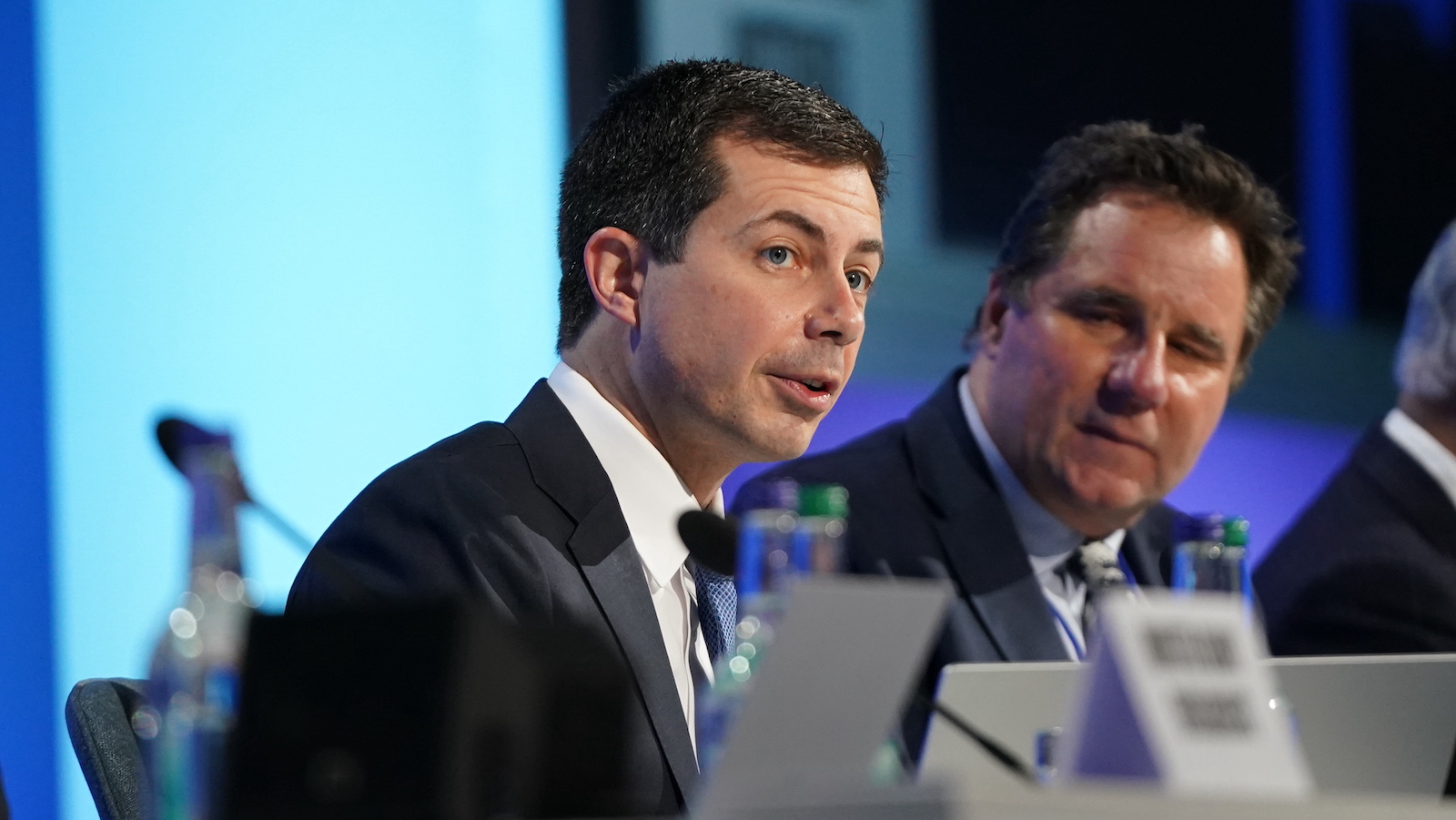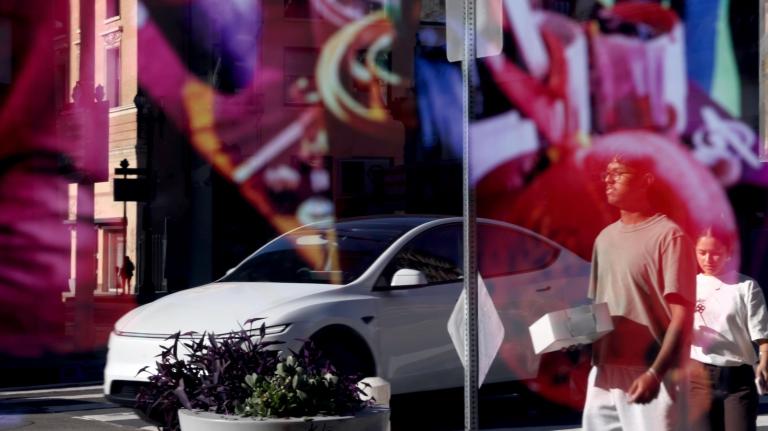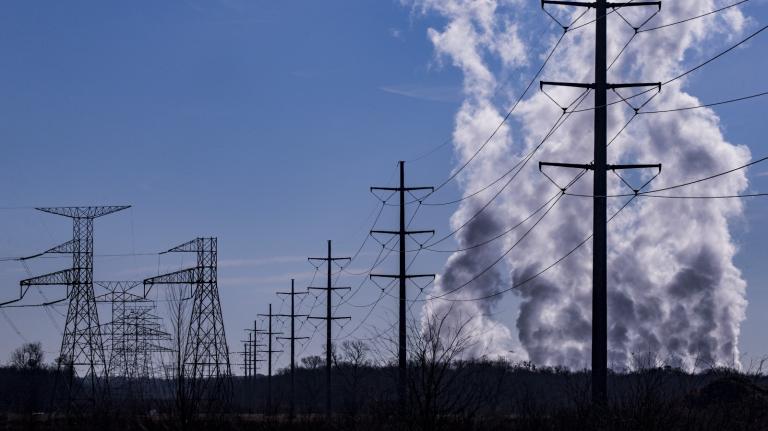The biggest source of emissions in the United States isn’t the fires of industry, or methane-belching cows, or even the country’s remaining 252 coal power plants. It’s the cars, planes, ships, and trains that, in moving Americans and their stuff from coast to coast, emit a whopping 1.9 billion metric tons of carbon dioxide every year. (For reference, that’s more than the entire carbon footprint of Russia.)
And Transportation Secretary Pete Buttigieg is in charge of trying to get that number much, much lower.
The former mayor of South Bend, Indiana, traveled to Glasgow, Scotland, this week for COP26, the U.N. climate summit that has already seen cameos from President Joe Biden and former President Barack Obama. There, Buttigieg tried to impress his fellow transportation leaders with how much the U.S. — with its obsession with giant cars and spread-out cities — can change how it moves around.
“We’re at the threshold of a historic moment,” Buttigieg said in an interview with Grist.
So far, the Biden administration’s approach to climate and transportation has skewed heavily toward electric vehicles. Biden has repeatedly vowed to build “500,000 charging stations” across America, and the $1.2 trillion bipartisan infrastructure bill passed by the House last week includes $7.5 billion for building a network of EV chargers across the country. If the reconciliation bill passes, American consumers will be able to get up to $12,500 off the purchase of a new electric car in the form of refundable tax credits.
“That moves EVs out of the realm of being luxury vehicles and means there are millions more families who might never have to worry about gas prices again,” Buttigieg said.
The tax credit has been hit with criticism, however — to get the full $12,500 off, electric cars will have to be manufactured in the U.S. with union labor. Foreign automakers, including Toyota, Volkswagen, and Hyundai, have protested the change; so has Tesla, which currently does not have a unionized workforce.
Buttigieg argues that the tax credit includes union labor for a reason. “EVs are one of the main places where we can break this old false choice that it’s climate versus jobs,” he said, pointing out that non-union-made cars can still qualify for up to $7,500 in tax credits.
The secretary also argues that the administration isn’t neglecting public transit, despite all the press around EVs. “We don’t want people to have to drag two tons of metal along with them everywhere,” he said. The bipartisan infrastructure bill includes $66 billion for rail (the biggest federal investment ever), and an additional $16 billion for ensuring that long-planned megaprojects — such as expensive train lines or road projects — actually get built. “The moment the president signs the infrastructure bill, there will be a one-plus trillion-dollar responsibility on the shoulders of this department to make sure that those dollars are going out effectively,” Buttigieg said.
The U.S. will also be targeting one of the most notoriously hard-to-decarbonize segments of transportation: aviation. Yesterday, the Department of Transportation announced a plan to bring emissions from planes to net-zero by 2050, through a combination of sustainable aviation fuel and more efficient aircraft designs. There are major hurdles ahead, however: U.S. airlines currently use around 18 billion gallons of aircraft fuel in an average year, and only about 2 million gallons of sustainable aviation fuel was produced domestically in 2018.
This transition to cleaner transportation won’t be easy. As a General Motors SuperBowl ad humorously pointed out earlier this year, the U.S. lags far behind many of its counterparts when it comes to electric vehicles, with countries like Norway, Germany, France, and China selling a far greater share of new EVs. Other nations are also beginning to ramp up their EV pledges: Today at COP26, a group of 30 countries and six auto companies promised to sell only zero-emissions vehicles by 2040. The U.S. did not join in. America’s paucity of public transport and rail infrastructure, meanwhile, continues to make the country over-reliant on personal cars.
But despite the challenges — and a Congress that has yet to pass landmark climate legislation — Buttigieg remains optimistic that the U.S. will soon have cleaner cars, trains, and planes. “It’s an anxious time as we try to get this across the goal line,” he said. “But it also represents the achievements that everyone who has a hand in will be proud of for the rest of our time in public life.”




